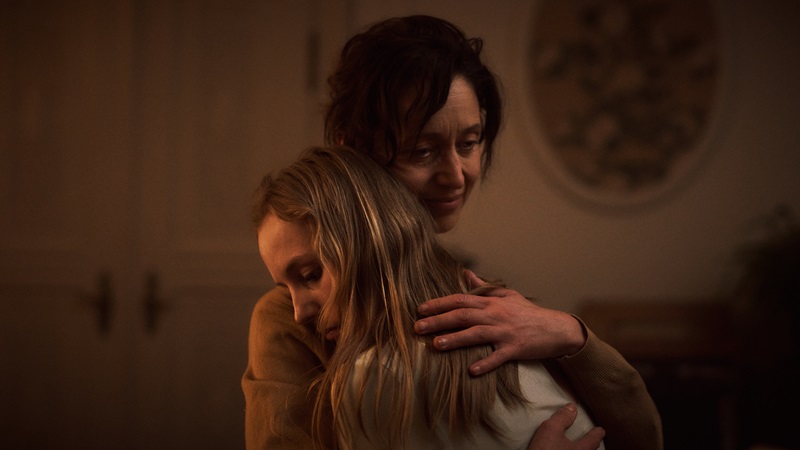Madame Ida movie review, Jacob Møller's intense drama about parenthood
Cinema / Reviews - 02 December 2024
Check out review of Madame Ida, movie in competition at Torino FF starring Crystal Moselle, Derrick: plot, cast, critics

Madame Ida, directed by Jacob Møller and presented in competition at the Turin Film Festival, explores the theme of human misery through the desperate pursuit of parenthood with dramatic tones and great depth. The Danish feature film tells the story of Ida, Cecilia, and Alma, three women of different generations united by great suffering and deprivation, and thus bound by a profound emotional closeness.
Cecilia, played by Flora Ofelia Hofmann Lindahl, a young resident in an orphanage, is abused by the institution's director and becomes pregnant against her will. Fearing further retaliation, she chooses never to reveal the father's identity. For this reason, the fifteen-year-old girl is entrusted by the orphanage to Ida, masterfully portrayed by Christine Albeck Børge, a tormented woman who, along with the housekeeper Alma, played by Karen-Lise Mynster, hosts her in her large house until the birth, as Ida will adopt the newborn. After a childhood of hardship and violence, Cecilia discovers for the first time what it means to have a home, a mother, and affection, feeling loved and cared for by Ida. However, the moment of childbirth represents a sharp turning point in the relationships between the three women, due to Ida's sudden change in behavior from a caring mother to a cruel and bipolar person. Something snaps deep within Ida, rendering her cold and apathetic towards Cecilia and the newborn Olivia. Not even the intervention of Alma, the housekeeper who was initially hostile but later proves to be the only character rich in humanity, can prevent Ida from turning Cecilia away.
1st prize at the TFF for Best Performance awarded to the all-female lead cast of "Madame Ida"
Jacob Møller offers a broad and engaging reflection on family dynamics, emotional conflicts, and the search for love and belonging. The acting of the various characters is complex, engaging, and wonderfully dramatic. Excellent performances by the entire cast of leading actresses have made this drama so compelling, earning them the 1st prize for Best Performance among the films presented at the TFF.
Cecilia, deprived of parental figures in her life, finally experiences human warmth within the house. Here, amid moments of play, dance, and affection, she begins to hope to be welcomed into Ida's family. However, Ida is a complex character: behind the facade of a loving and caring mother lies an ambivalence that emerges strongly after the birth. Her coldness and detachment reveal a tormented personality, likely marked by the trauma of losing a child when she was younger, which now leads her to reject the role of mother both towards Cecilia and the newborn she has adopted.
Alma, the housekeeper, is also a figure rich in nuances. Initially detached and even hostile towards Cecilia, she understands more than anyone else the sense of abandonment that the young girl experiences, having faced the trauma of the orphanage herself. However, precisely because of this awareness, Alma avoids creating deep bonds with Cecilia, convinced that Ida will never truly welcome her as part of the family.
Special praise also goes to the soundtrack, primarily performed on piano, composed by Kaspar Kaae. It is delicate and penetrating, capable of engaging and so incisively underlining the passages of the narrative drama.
A film
absolutely recommended for its delicacy, dramatic impact, and narrative
authenticity.
© All right Reserved












